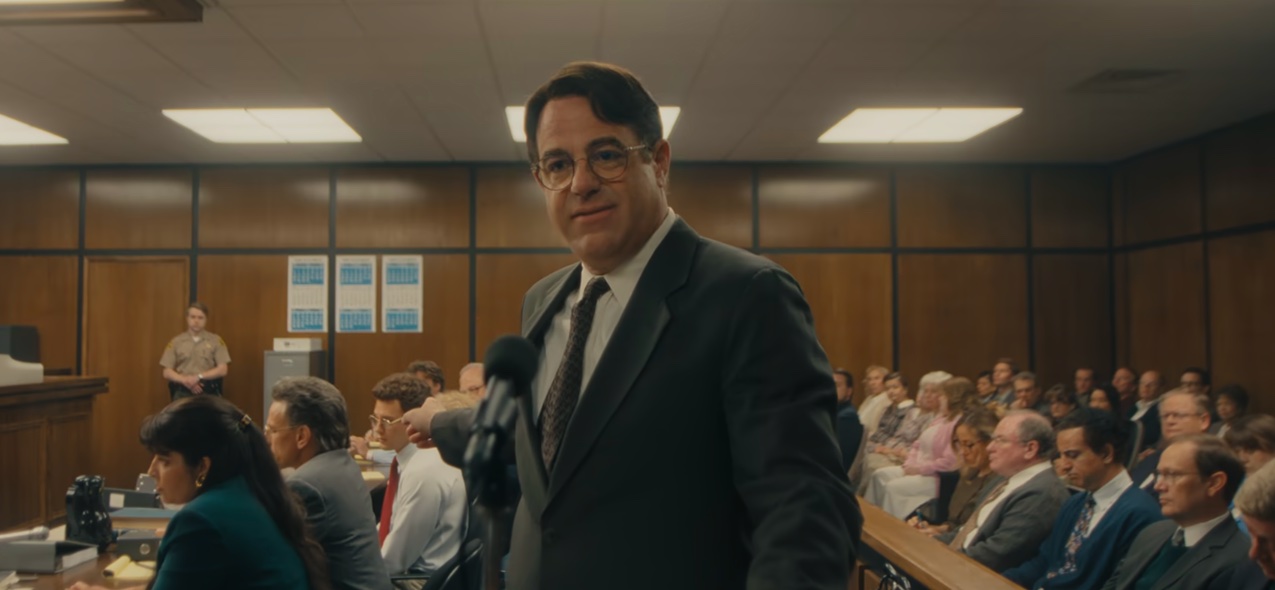In Netflix’s ‘Monsters: The Lyle and Erik Menendez Story,’ two brothers claim that they killed their parents because they had been sexually abused by them for several years. While there is overwhelming evidence against the brothers, and there is no doubt that they indeed shot their parents to death in their own home, it falls on the prosecution to prove beyond a doubt that Erik and Lyle Menendez deserve to spend the rest of their lives in prison. The first time, the prosecution is not able to get the jury completely on their side. But the second time, a seasoned prosecutor, David Conn, is brought into the case, and he completely turns the tables.
David Conn Came from Humble Beginnings
Described as “one of the best, if not the best, trial lawyers,” David Conn hailed from New York. His father was a factory worker, and his mother was a homemaker. Conn was sent to study in a Catholic school, but he dropped out of there and joined the army. As part of the Marine Corps, he went to Vietnam but did not experience combat. He was mostly involved with fixing radar equipment. When his career in the military came to an end, he went to Hunter College and then to Columbia University Law School, graduating with a law degree in 1977.

Conn’s first career move was to shift to Los Angeles, California, where he landed a job with the Los Angeles County district attorney’s office. Over the years, he earned a reputation by tackling some very high-profile cases, like Dan Haggerty’s case in 1985, the Bill Bradford case in 1988, and the Cotton Club murder case of Roy Radin in 1990-91. He also had minor involvement in the grand jury phase of the O.J. Simpson trial. By the time the second Menendez trial came around, Conn had been made the acting head of the major crimes unit. He volunteered to lead the second trial and came through on his promise to deliver.
David Conn Won the Seemingly Unwinnable Menendez Brothers Case
When the first trial of the Menendez brothers was declared a mistrial due to a hung jury, some believed that it would be even more difficult to win the second trial. However, Conn was already prepared. With the defense building a case for the brothers by focusing on their claims of sexual abuse by their parents, he decided to turn the tables by directly attacking the said claims. He made it clear early on that he was interested in the trial of Lyle and Erik Menendez, not Jose and Kitty Menendez. He did not hesitate from poking holes in all that the brothers had claimed their father did to them.
He even questioned Erik’s sexuality, suggesting that the problems in the family were because he was gay and concluded that the alleged abuse never happened. Apart from this, Conn also focused on why the brothers didn’t run away or choose any other alternative rather than killing their parents. By the end of it, he had successfully made the jury question their sympathies, if they had any, for the brothers by calling their claims “abuse excuse.” In his closing arguments, he called Erik and Lyle’s case “the silliest, most ridiculous story ever told in a courtroom.”
A few days later, the jury found the brothers guilty. Winning such a high-profile case, especially at a time when the DA’s office desperately needed the win, would have meant great things for Conn in the future. However, soon after, he was passed over for a promotion he believed he deserved, which caused a rift between him and his boss, Gil Garcetti. In 1999, Conn sued his former boss, seeking 470.5 hours of overtime pay during his work on the Menendez case, which he had turned into a win.
David Conn Died in 2006 After a Short Illness
David Conn died on October 24, 2006, at his home in Dana Point, California. He was 56 years old and had lived with Lou Gehrig’s disease, or amyotrophic lateral sclerosis (ALS), for the last five months of his life. He was surrounded by his family in his final moments, especially his wife of 34 years, Rosemary, with whom he had two daughters, Jessica and Danielle. Described by Time magazine as a “Clark Kent-type” lawyer, Conn spent the last few years of his life working for himself.
Following the Menendez case, he was transferred to the suburban courthouse in Norwalk. While he was a bit disgruntled about the lack of promotion and the sudden transfer, his wife found that it was better for him and their family. She said it gave him time to do the things he’d been thinking of doing for a long time. He left the DA’s office after giving 18 years of his life to it in 1997. He briefly worked at the firm Jeffer, Mangels, Butler & Marmaro but then left it to start his own practice in West LA. His wife revealed that he loved his work, especially when he had his own practice, which allowed him the flexibility to work on his own terms, especially spending more time with his family and loved ones.
Read More: Leslie Abramson: Where is Erik Menendez’s Lawyer Now?


You must be logged in to post a comment.